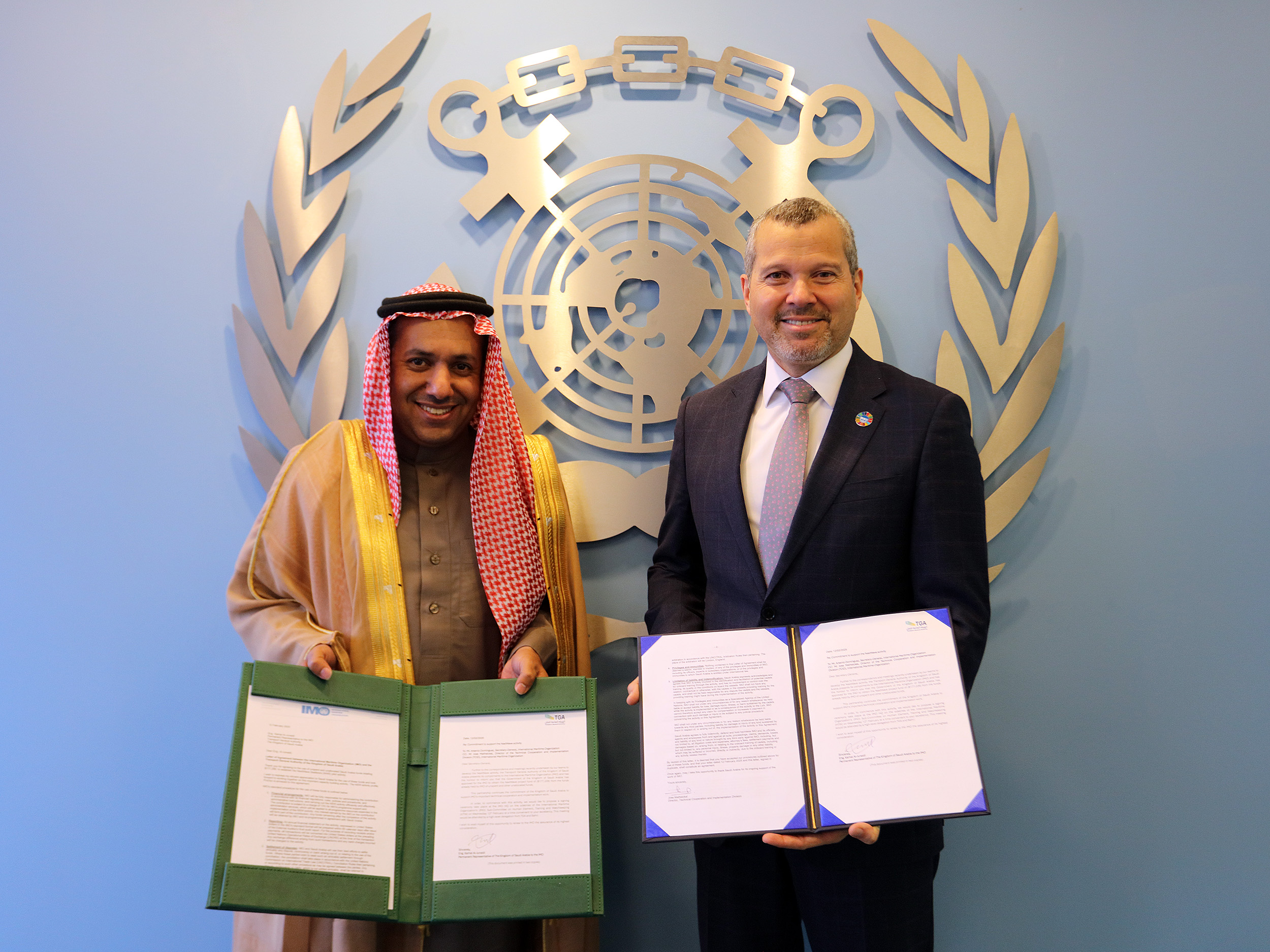New initiative aims to tackle rising demands on the shipping sector while strengthening the maritime workforce.

IMO Secretary-General Mr. Arsenio Dominguez (right) and Permanent Representative of Saudi Arabia to IMO Mr. Kamal M. Al Junaidi welcomed the NextWave Seafarers pilot project and encouraged other countries to join.
A groundbreaking initiative led by the International Maritime Organization (IMO) and the Kingdom of Saudi Arabia (KSA) aims to address the global seafarer shortage while creating career opportunities for aspiring seafarers from developing nations.
The NextWave Seafarers project was formally launched with the signing of a Letter of Agreement between Mr. Kamal M. Al Junaidi, Permanent Representative of Saudi Arabia to the International Maritime Organization and Mr. Jose Matheickal, Director of the Technical Cooperation and Implementation Division (TCID) of IMO.
The signing was witnessed by IMO Secretary-General Mr. Arsenio Dominguez, with senior representatives from the Transport General Authority (TGA) of KSA and Bahri Shipping Line in attendance.
A game-changer for global seafarer training and recruitment
Running from 2025 to 2026, the NextWave Seafarers Project will provide 20 cadets from Least Developed Countries (LDCs) and Small Island Developing States (SIDS) with one year of onboard training through Bahri Shipping Line, one of Saudi Arabia's leading maritime companies. The goal is to develop a scalable training model that can be adopted globally, encouraging more countries and shipping lines to participate.
The Project aims to:
- Establish a sustainable, onboard cadet-training framework to develop, upskill, and retain future seafarers;
- Address key barriers preventing LDCs and SIDS cadets from entering the industry, including access to training placements and financial support;
- Promote gender diversity by actively encouraging women cadets to join the programme; and
- Showcase the initiative as a pilot model that can be expanded and replicated worldwide.
Tackling a global workforce challenge
With 1.9 million seafarers ensuring the movement of over 80% of global trade, the maritime industry faces an urgent workforce challenge, particularly a shortage of officers, as demands on maritime transport grow.
Through its cooperative framework between IMO, Member States and shipping companies, the NextWave Seafarers initiative provides a proactive solution by creating a structured talent pipeline and a steady influx of skilled professionals into the sector.
IMO Secretary-General Mr. Arsenio Dominguez stressed the importance of strengthening the maritime workforce: "The future of the global shipping industry depends on its people, and this initiative has the potential to transform maritime careers for young seafarers worldwide."
Mr. Kamal M. Al Junaidi, Permanent Representative of Saudi Arabia to the IMO, highlighted the Project's broader vision: "Through this initiative, we aim not only to train the next generation of seafarers but also to lead and inspire other nations and shipping companies to adopt similar programmes."
A call to action: Expanding global participation
The NextWave Seafarers Project invites IMO Member States, training institutions, and shipping companies to collaborate in expanding this initiative and building a skilled, diverse, and resilient maritime workforce.
Designed as a proof of concept, the project's outcomes will be shared with IMO Member States to shape future policy recommendations, enhance global seafarer training frameworks, and contribute to long-term maritime workforce planning.
IMO will issue a circular letter in due course requesting nominations of cadets from LDCs and SIDS through their respective maritime administrations. The circular letter will explain the criteria for selection and mode of participation in the training programme.






